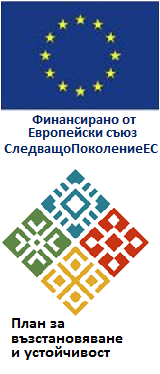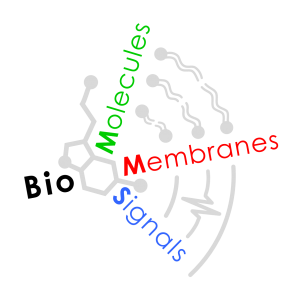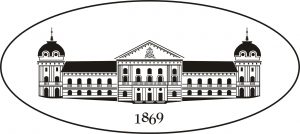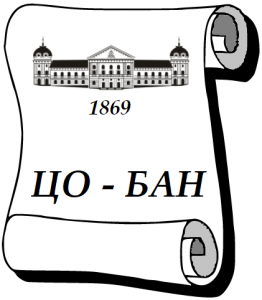Head of Department
Prof. Ivanka Tsakovska, PhD
- Email: itsakovska@biomed.bas.bg
- Phone: 02 979 3605
- Address: “Acad. G. Bonchev” Str., Block 105, Room 206
Sofia 1113, Bulgaria
Staff
- Acad. Ilza Pajeva, DSc., Honorary Head of Department, affiliated scientist, pajeva@biomed.bas.bg
- Prof. Tania Pencheva, PhD, tania.pencheva@biomed.bas.bg
- Sen. Assist. Prof. Iglika Lessigiarska, PhD, iglika.lessigiarska@biomed.bas.bg
- Sen. Assist. Prof. Maria Angelova, PhD, maria.angelova@biomed.bas.bg
- Sen. Assist. Prof. Elina Beleva, PhD, elina.beleva@biomed.bas.bg
- Sen. Assist. Prof. Antonia Diukendjieva-Todorova, PhD, antonia@biomed.bas.bg
- Sen. Assist. Prof. Boian Lazov, PhD, boian@biomed.bas.bg
- Sen. Assist. Prof. Stefan Ivanov, PhD, stefan@biomed.bas.bg
- Petko Alov, specialist, petko@biophys.bas.bg
- Atanas Shopov, specialist, atanas@biomed.bas.bg
- Radostina Nikolova-Kezhova, specialist, radost@biomed.bas.bg
- Dessislava Jereva, PhD student, programmer, dessislava.jereva@biomed.bas.bg
- Parashkev Katerski, PhD student, pkaterski@gmail.com
Main research topics
Studies are based on QSAR (quantitative structure-activity relationships) and molecular modeling approaches for characterizing the relationship between the structure of chemical compounds and their biological effect. The models use integral and local two-dimensional (2D) and / or three-dimensional (3D) structural features; the effect may be medicinal (therapeutic), toxic, etc.
Depending on the information available on the 3D structure of the target biomacromolecule, ligand-based and structure-based approaches are used including: pharmacophore modeling, molecular fields analysis, homology modeling of proteins, docking and virtual screening of bioactive compounds, identification and analysis of protein–ligand interactions, formation of chemical categories using different chemometrical methods. The applications are in the field of rational drug design and evaluation of toxic effects of chemicals on human health and environment. Subject matter is highly interdisciplinary and integrates knowledge from scientific fields such as medicine, pharmacology, physics, chemistry, methods of structural analysis, mathematical and engineering methods (mathematical statistics, pattern recognition, experimental design, programming, software development etc.
Research projects
Current projects
- New Diagnostic and Therapeutic Tools against Multidrug Resistant Tumors
EU Framework Programme Horizon 2020, COST Action CA17104, 2018-2022
Project leader for the IBPhBME team: Corr. Memb. Prof. Ilza Pajeva
- Programme for Co-funding of COST Action CA17104
Bulgarian National Science Fund, Project KP-06-COST/3/18.06.2019, 2019-2021
Project leader: Ivanka Tsakovska
- Multitarget peptide-fragment hybrids for the treatment of neurodegenerative diseases
Bulgarian National Science Fund, Project KP-06-OPR03/8, 2018-2021
Project leader for the IBPhBME team: Corr. Memb. Prof. Ilza Pajeva
- National Research Programme “Healthy Foods for a Strong Bio-Economy and Quality of Life” (http://www.nnp-food.au-plovdiv.bg/)
Bulgarian Ministry of Education and Science, Project DCM # 577 / 17.08.2018, 2018-2021
Project leader for the IBPhBME team: Corr. Memb. Prof. Ilza Pajeva
- New approach based on intercriteria data analysis for decision support in in silico research of complex biomolecular systems
Bulgarian National Science Fund, Project DN 17/6, 2017-2020
Project leader: Prof. Tania Pencheva
Past projects
- Mode of action networking and in silico co-targeting of host PPARγ and host or viral proteins relevant to modulation of coronavirus-induced respiratory syndromes
Project for future career development of Senior Assist. Prof. Merilin Al Sharif, PhD within the National Research Programme “Young scientists and postdoctoral students” of the Bulgarian Ministry of Education and Science, module “Postdoctoral students”, grant number DCM # 577 / 17.08.2018, 15.03.2020 – 14.03.2021
Project leader: Senior Assist. Prof. Merilin Al Sharif, PhD, Supervisor: Corr. Member Prof. Ilza Pajeva, DSc
- Interaction of natural products with drug metabolizing enzymes
Bulgarian National Science Fund, Project DNTS /France 01/1, 2017-2019
Project leader: Prof. Tania Pencheva
- Challenging organic syntheses inspired by nature – from natural products chemistry to drug discovery
EU Framework Programme Horizon 2020, COST Action CM1407, 2015-2019
Project leader for the IBPhBME team: Corr. Memb. Prof. Ilza Pajeva
- Programme for Co-funding of COST Action СМ1407
Bulgarian National Science Fund, Project DCOST 01/11, 2016-2018
Project leader: Corr. Memb. Prof. Ilza Pajeva
- Natural product-based modulation of metabolic syndrome: combining in silico and in vivo methods to investigate the potential role of the nuclear receptor PPARγ
Bulgarian National Science Fund, Project DM01/1/2016, 2016-2018
Project leader: Dr Merilin Al Sharif
- Computer system for advanced studies in molecular design, new materials and nanotechnology (website)
Bulgarian National Science Fund, Project DD02-52/10.12.2008
Leader of the IBPhBME team: Ilza Pajeva
- In silico study of effects of bioactive compounds: applications to objects of priority for human health and environment
Bulgarian National Science Fund, Project DТК02/58
Project leader: Ilza Pajeva
- Integrated in silico models for the prediction of human repeated dose toxicity of cosmetics to optimise safety – COSMOS (website)
FP7 of EC, Project N266835
Leader of the IBPhBME team: Ivanka Tsakovska
- Structure-activity relationships and molecular modeling of cationic drugs able to modulate multidrug resistance in tumors
Bulgarian National Science Fund, Project L518/1995
Project leader: Ilza Pajeva
- Application of information technology for rational drug design of agents, overcoming drug resistance
Bulgarian National Science Fund, Junior project MU-I-8/1998
Project leader: Ivanka Tsakovska
- Investigation of compounds, modulating drug resistance: modeling and prediction of bioactivity
Bulgarian National Science Fund, Project L910/1999
Project leader: Ilza Pajeva
- Investigation of structure-function relationships of the transport P-glycoprotein and its substrates and inhibitors with application in drug therapy
Bulgarian National Science Fund, Project L1416/2004
Project leader: Ilza Pajeva
International collaboration
- Joint Research Centre – European Commission, Ispra, Italy
- Department of Chemistry and Technology of Drugs, Sapienza University of Rome, Italy
- School of Pharmacy and Chemistry, Liverpool John Moores University, Liverpool, UK
- University of Bonn, Bonn, Germany
- INSERM U.973 – MTI, University Paris-Diderot – Paris 7, Paris, France
- Institute of Pharmacological Sciences, Pharmaceutical Faculty, University of Siena, Italy
Awards
- 2019 – Merilin Al Sharif – Best Oral Presentation Award, Second Scientific Session “Biomedicine and Quality of Life” at the IBPhBME-BAS, 04-05.11.2019, Sofia, Bulgaria
- 2018 – Merilin Al Sharif – Best Poster Award at the International scientific conference “Kliment’s Days” 2018, Sofia, Bulgaria
- 2017 – Antonia Diukendjieva-Todorova – “Ivan Evstratiev Geshov” Youngest Researchers Award of the Bulgarian Academy of Sciences
- 2015 – Best Poster Award at the 1st Meeting of COST Action CM1407, Rome, Italy – collective award
- 2015 – Merilin Al Sharif – Best Oral Presentation Award from Teva Czech Industries at 2-nd International Conference on Natural Products Utilization, Plovdiv, Bulgaria
- 2014 –Best Poster Award at the 16th Congress of the European Neuroendocrine Association, Sofia, Bulgaria – collective award
- 2011 – Ilza Pajeva – Award of Excellence of the Union of the Scientists in Bulgaria for scientists above 35 years of age
- 2011 – 2nd Award of the 9th National Young Scientific Session, organized by the Federation of the Scientific-Engineering Unions in Bulgaria – collective award
- 2006 – Tania Pencheva – Award of the Union of the Scientists in Bulgaria for young scientist’s achievements in the area of medicinal/biological sciences
- 2004 – Ivanka Tsakovska – Award “Evrika” for achievements in science issued by Evrika Foundation and Higher Accreditation Commission
- 2003 – Ivanka Tsakovska – National Award “Marin Drinov” for young scientists (up to 35 years of age) issued by Bulgarian Academy of Sciences for scientific contributions
- 2002 – Ivanka Tsakovska – Award of the National Science Fund, Ministry of Education and Science, Bulgaria for the best junior project (grant MU-I-8/98) in the competition “Young Scientists”
- 1999 – Ilza Pajeva – 2nd Award of the National Science Fund – Bulgaria for essential research results in 5th Competition Session 1995-1998 (grant L-518)
Lecture courses
- Computer–Aided Drug Design: Ligand-Based Methods – Master Program “Bio- and Medical Informatics”, University of Sofia, 2014-2018
- Intelligent Systems – Master Program “Computer Systems and Technologies”, University “Prof. Dr Asen Zlatarov”, Burgas, 2014-2018
- Molecular modeling with QSAR – Master Program “Computational Chemistry”, University of Sofia, Faculty of Chemistry, 2002-2004, 2008-2018
- Computer–Aided Drug Design: Ligand-Based Methods – Master Program “In Silico Drug Design”, University Paris-Diderot – Paris 7, Paris, France, 2011/2012
Selected publications
- Pajeva, I. K., M. Wiese. Pharmacophore model of drugs involved in P-glycoprotein multidrug resistance: explanation of structural variety (Hypothesis), J. Med. Chem., 2002, 45, 5671-86.
- Lessigiarska, I., Pajeva, I., Cronin, M.T.D., Worth, A.P. 3D SAR and QSAR investigation of blood-brain barrier penetration of chemical compounds, SAR QSAR Environ. Res., 2005, 16, 79-91.
- Bogdanova S., I. Pajeva, P. Nikolova, I. Tsakovska, B. Müller. Interactions of poly(vinylpyrrolidone) with ibuprofen and naproxen: experimental and modeling studies, Pharmaceut. Res., 2005, 22, 806-815.
- Tsakovska I., I. Pajeva. Phenothiazines and structurally related compounds as modulators of cancer multidrug resistance, Curr Drug Targets, 2006, 7, 1123-1134.
- Wiese, M., I. Pajeva. In silico models for interactions with transporters, In: Comprehensive Medicinal Chemistry II, (Editors-in-Chief: John B Taylor and David J Triggle) Vol. 5: ADMET/Property based approaches, (Eds. B. Testa, H. Water-beemed), Elsevier: Oxford, 2007, 767-795.
- Tsakovska, I., A.G. Saliner, T. Netzeva, M. Pavan, A.P. Worth. Evaluation of SARs for the prediction of eye irritation/corrosion potential – structural inclusion rules in the BfR decision support system. SAR QSAR Environ. Res., 18(3-4), 2007, 221-235.
- Pencheva, T., D. Lagorce, I. Pajeva, B. O. Villoutreix, M.A. Miteva. AMMOS: Automated Molecular Mechanics Optimization tool for in silico Screening, BMC Bioinformatics, 2008, 9, 438-452.
- Tsakovska, I., I. Lessigiarska, T. Netzeva, A.P. Worth. A Mini Review of Mammalian Toxicity (Q)SAR Models, QSAR Comb Sci., 27(1), 2008, 41-48.
- Pajeva, I., M. Wiese. Structure-activity relationships of a series of tariquidar analogs as multidrug resistance modulators. The AAPS Journal, 2009, 11, 435-444.
- Pajeva, I. K., C. Globisch, M. Wiese. Combined pharmacophore modeling, docking and 3D QSAR study of ABCB1 and ABCC1 transporter inhibitors. ChemMedChem, 2009, 4, 1883-1896.
- Pajeva, I. K., C. Globisch, M. Wiese. Comparison of the inward- and outward-open homology models and ligand binding of human P-glycoprotein. FEBS J., 2009, 276, 7016–7026.
- Lagorce D., T. Pencheva, B. Villoutreix, M. Miteva, DG-AMMOS: A New Tool to Generate 3D Conformation of Small Molecules using Distance Geometry and Automated Molecular Mechanics Optimization for in silico Screening, BMC Chemical Biology, 2009, 9:6.
- Pencheva T., O.S. Soumana, I. Pajeva, M.A. Miteva. Post-docking virtual screening of diverse binding pockets: Comparative study using DOCK, AMMOS, X-Score and FRED scoring functions. Eur J Med Chem., 2010, 45, 2622–2628.
- Tsakovska I., I. Pajeva, P Alov, A. Worth. Recent Advances in the Molecular Modelling of Estrogen Receptor-Mediated Toxicity, In: Christo Christov, editor: Advances in Protein Chemistry and Structural Biology, Vol. 85, Burlington: Academic Press, 2011, pp. 217-251.
- Angelova, M., Atanassov, K., Pencheva, T. Purposeful Model Parameters Genesis in Simple Genetic Algorithms. Computers & Mathematics with Applications, 64, 2012, 221-228.
- Lessigiarska, I., Pajeva, I., Prodanova, P., Georgieva, M., Bijev, A. Structure-activity relationships of pyrrole hydrazones as new anti-tuberculosis agents. Medicinal Chemistry, 8, 3, 2012, 462-473.
- Odjakova, M., Popova, E., Al Sharif, M., Mironova, R. „Plant-Derived Agents with Anti-Glycation Activity, Glycosylation”, in “Glycosylation”, Dr. Stefana Petrescu (Ed.), InTech, 2012, 223-256.
- Pajeva, I., Hanl, M., Wiese, M. Protein contacts and ligand binding in the inward-facing model of human P-glycoprotein. ChemMedChem., 8, 5, 2013, 748-762.
- Pajeva, I., Sterz, K., Steggemann, K., Marighetti, F., Christlieb, M., Wiese, M. Interactions of the multidrug resistance modulators tariquidar and elacridar and their analogs with P-glycoprotein. ChemMedChem., 8, 10, 2013, 1701-1813.
- Pencheva, T., Angelova, M., Atanassov, K. Genetic Algorithms Quality Assessment Implementing Intuitionistic Fuzzy Logic. Handbook of Research on Novel Soft Computing Intelligent Algorithms: Theory and Practical Applications, IGI Global, Hershey, Pennsylvania (USA), 2013, 327-354
- Pencheva, T., Jereva, D., Miteva, M, Pajeva, I. Post-docking Optimization and Analysis of Protein-ligand Interactions of Estrogen Receptor Alpha using AMMOS Software. Current Computer-Aided Drug Design, 9, 1, 2013, 83-94.
- Roeva, O., Pencheva, T., Shannon, A., Atanassov, A. Generalized nets in artificial intelligence. Volume 7: Generalized nets and genetic algorithms. Academic Publishing House “Prof. Marin Drinov”, 2013.
- Al Sharif, M., Alov, P., Vitcheva, V., Pajeva, I., Tsakovska, I. Modes-of-action related to repeated dose toxicity: tissue-specific biological roles of PPARγ ligand-dependent dysregulation in nonalcoholic fatty liver disease. PPAR Research, 2014, Article ID 432647.
- Tsakovska, I., Al Sharif, M., Alov, P., Diukendjieva, A., Fioravanzo, E., Cronin, M.T.D., Pajeva, I. Molecular modelling study of the PPARγ receptor in relation to the mode of action/adverse outcome pathway framework for liver steatosis. International Journal of Molecular Sciences, 15, 5, 2014, 7651-7666.
- Alov, P., Tsakovska, I., Pajeva, I. Computational Studies of Free Radical-Scavenging Properties of Phenolic Compounds. Current Topics in Medicinal Chemistry, 15, 2, 2015, 85-104.
- Fratev, F., Tsakovska, I., Al Sharif, M., Mihaylova, E., Pajeva, I. Structural and Dynamical Insight into PPARγ Antagonism: In silico Study of the Ligand-Receptor Interactions of Non-Covalent Antagonists. International Journal of Molecular Sciences, 16, 7, 2015, 15405-15424.
- Pencheva, T., Angelova, M., Vassilev, P., Roeva, O. InterCriteria Analysis Approach to Parameter Identification of a Fermentation Process Model. Novel Developments in Uncertainty Representation and Processing, Vol. 401 of Advances in Intelligent Systems and Computing, Springer, 2016, 385-397.
- Roeva O., T. Pencheva, M. Angelova, P. Vassilev, InterCriteria Analysis by Pairs and Triples of Genetic Algorithms Application for Models Identification, Recent Advances in Computational Optimization, Vol. 655 of Studies in Computational Intelligence, 2016, 193-218.
- Burton, J., Worth, A.P., Tsakovska, I., Diukendjieva, A. In silico Models for Acute Systemic Toxicity, In: In silico Methods for Predicting Drug Toxicity. Methods in Molecular Biology, Benfenati E (Ed.), 1425, 2016, 177-200.
- Al Sharif, M., Alov, P., Diukendjieva, A., Vitcheva, V., Simeonova, R., Krasteva, I., Shkondrov, A., Tsakovska, I., Pajeva, I. Molecular determinants of PPARγ partial agonism and related in silico / in vivo studies of natural saponins as potential type 2 diabetes modulators. Food Chem Toxicol, 112, 2017, 47-59.
- Al Sharif, M., Alov, P., Vitcheva, V., Diukendjieva, A., Mori, M., Botta, B., Tsakovska, I., Pajeva, I. Natural modulators of nonalcoholic fatty liver disease: Mode of action analysis and in silico ADME-Tox prediction. Toxicol Appl Pharmacol, 337, 2017, 45-66.
- Al Sharif, M., Tsakovska, I., Pajeva, I., Alov, P., Fioravanzo, E., Bassan, A., Kovarich, S., Yang, C., Mostrag-Szlichtyng, A., Vitcheva, V., Worth, A.P., Richarz, A.N., Cronin, M.T.D. The application of molecular modelling in the safety assessment of chemicals: A case study on ligand-dependent PPARγ dysregulation. Toxicology, 392, 2017, 140-154.
- Diukendjieva, A., Al Sharif, M., Alov, P., Pencheva, T., Tsakovska, I., Paeva, I. ADME/Tox Properties and Biochemical interactions of Silybin Congeners: In silico Study. Natural Product Communications, 12, 2, 2017, 175-178.
- Jereva, D., Fratev, F., Tsakovska, I., Alov, P., Pencheva, T., Pajeva, I. Molecular Dynamics Simulation of the Human Estrogen Receptor Alpha: Contribution to the Pharmacophore of the Agonists. Mathematics and Computers in Simulation, 2017, 124-134.
- Tsakovska, I., Pajeva, I., Al Sharif, M., Alov, P., Fioravanzo, E., Kovarich, S., Worth, A.P., Richarz, A.-N., Yang, C., Mostrag-Szlichtyng, A., Cronin, M.T.D. Quantitative structure-skin permeability relationships. Toxicology, 387, 2017, 27-42.
- Angelova, V., Voinikov, Y., Andreeva-Gateva, P., Surcheva, S., Vassilev, N., Pencheva, T., Tchekalarova, J. In vitro and in silico Evaluation of Chromene Based Aroyl Hydrazones as Anticonvulsant Agents. Medicinal Chemistry Research, 26, 9, 2017, 1884-1896.
- Labbé, C., Pencheva, T., Jereva, D., Desvillechabrol, D., Becot, J., Villoutreix, B., Pajeva, I., Miteva, M. AMMOS2: A Web Server for Protein-ligand-water Complexes Refinement via Molecular Mechanics. Nucleic Acids Research, 45(W1), 2017, W350-W355.
- Stoyanova, T., Lessigiarska, I., Mikov, M., Pajeva, I., Yanev, S. Xanthates as useful probes for testing the active sites of Cytochromes P450 4A11 and 2E1. Frontiers in Pharmacology, 8, 2017, Article 67.
- Аngelova, V., Valcheva, V., Pencheva, T., Voynikov, Y., Vassilev, N., Mihaylova, R., Momekov, G., Shivachev, B. Synthesis, Antimycobacterial Activity and Docking Study of 2-aroyl-⟦1⟧benzopyrano⟦4,3-c⟧pyrazol-4(1H)-one Derivatives and Related Hydrazide-hydrazones. Bioorganic & Medicinal Chemistry Letters, 27, 13, 2017, 2996-3002.
- Angelova, VT; Voynikov, Y; Andreeva-Gateva, P ; Surcheva, S; Vassilev, N; Pencheva, T; Tchekalarova, J. In vitro and in silico evaluation of chromene based aroyl hydrazones as anticonvulsant agents. Medicinal Chemistry Research, 2017, 26 (9), 1884-1896
- Al Sharif M., A. Diukendjieva-Todorova, P. Alov, V. Vitcheva, M. Mori, B. Botta, I. Tsakovska, I. Pajeva. Natural modulators of nonalcoholic fatty liver disease: mode of action analysis and in silico ADMET prediction, Toxicology and Applied Pharmacology, 2017, 337, 45-66.
- Pencheva, T., Roeva, O., Angelova, M. Investigation of Genetic Algorithm Performance Based on Different Algorithms for InterCriteria Relations Calculation. Lecture Notes in Computer Science, 10665, 2018, 390-398.
- Al Sharif M., P. Alov, A. Diukendjieva, Vitcheva; R. Simeonova, I. Krasteva, A. Shkondrov, I. Tsakovska, I. Pajeva. Molecular determinants of PPARγ partial agonism and related in silico / in vivo studies of natural saponins as potential type 2 diabetes modulators, Food and Chemical Toxicology, 2018, 112, 47-59.
- Diukendjieva, A., P. Alov, I. Tsakovska, T. Pencheva, Richarz, V. Kren, M.T.D. Cronin, I. Pajeva. In vitro and in silico studies of the membrane permeability of natural flavonoids from Silybum marianum (L.) Gaertn. and their derivatives, Phytomedicine, 2019, 53, 79-85.
- Al Sharif, M., V. Vitcheva, R. Simeonova, I. Krasteva, V. Manov, P. Alov, G. Popov, A. Shkondrov, I. Pajeva. In silico and in vivo studies of Astragalus glycyphylloides saponin(s) with potential relevance to metabolic syndrome modulation, Food and Chemical Toxicology, 2019, 130, 317-325.
- Angelova, V.T., Pencheva, T., Vassilev, N., Simeonova, R., Momekov, G., Valcheva, V.. New indole and indazole derivatives as potential antimycobacterial agents, 2019, Medicinal Chemistry Research, 28 (4), 485-49.
Last update: 12 August 2019







